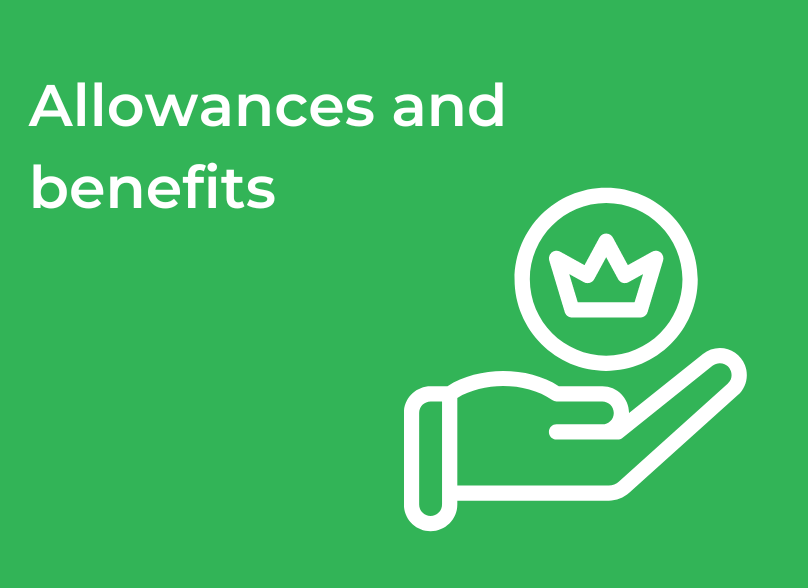Fostering as a career
Fostering can be an incredibly fulfilling career if you're passionate about helping children and young people.


As a foster carer, you will provide a secure, supportive home for those who can't stay with their birth parents. You'll have the chance to make a positive difference in the lives of children and young people, helping them heal and develop.
Advantages of a profession in fostering
Flexibility
Fostering can be tailored to your lifestyle. You can take on full or part-time fostering depending on your availability.
A sense of purpose
Giving care to those in need can bring a feeling of accomplishment and satisfaction as you help children and young people during challenging periods in their lives.
Professional growth
Fostering needs patience, empathy and kindness and offers individual and occupational growth as you care for children and young people. This can lead to personal and occupational development as you help and nurture them.
The support you'll receive when choosing Nexus Fostering
Training
Nexus Fostering will provide training before, during, and after to help you succeed in your role and to achieve the best outcomes for the child in our care.
Financial support
Nexus Fostering provides regular fostering payments to our foster carers to cover the cost of caring for their children, as well as supporting the cost-of-living, and access to discounts to 1000s of high streets retailers via our brand new rewards platform.
Support and guidance
Nexus Fostering provides ongoing support, resources, and guidance to all foster carers, this includes training, financial support, and counselling.
Income tax for foster carers
When you become a foster carer, you will need to register as self-employed and file tax returns. Foster carers can earn up to £18,140 tax-free and then get additional tax-free depending on the child’s age; Under age 11, you can earn £375 per week, and over age 11, you can earn £450 per week before paying tax.
If you work and foster simultaneously, you would still pay any applicable tax on your employment salary.
The HMRC published an online training website for foster carers to learn more about their tax. Help and support for foster parents: Tax arrangements - GOV.UK
On this page

Common Questions
There are several misconceptions about working/fostering life balance. Despite the time and dedication required to fostering, you still can keep a full-time job.
Many foster carers can balance the responsibilities of caring for a foster child with their work commitments. Fostering a child can require a sizable time commitment because you'll be responsible for meeting the child's requirements and creating a nurturing environment for them.
You may need to be flexible with your work schedule to attend meetings and appointments related to the child's care, and you may need to work with your employer to find a suitable arrangement that allows you to fulfil your responsibilities as a foster carer.
It is also a good idea to discuss your plans to foster a child with your employer before you begin the process so that you can understand any potential impacts on your job and make any necessary arrangements in advance.
Foster caring is a time-consuming role, not just in terms of raising a child/family, but also in terms of all the work that goes on behind the scenes (report writing, handling paperwork, contributing to fostering reviews, liaising with a number of social, health and education professionals).
Foster carers receive a fostering allowance that is considered enough to cover the costs of looking after a child in foster care. This should include basic things such as clothing, food and pocket money – however, there will be some flexibility around how this is spent when it comes to your family dynamic.
In most cases, it is unrealistic for a foster carer to be expected to give up their steady income to become a stay-at-home parent. Each foster case will be handled differently, focusing on the needs and requirements of the individual that’s being fostered. There are a number of factors that could come into discussion when talking about your working life whilst looking to foster a child; such as will you be a single carer, is your employment full or part-time, what hours will you be working and so on..
Foster carers are expected to look after their children and be able to provide the time to care for them whenever required to do so. This would include things such as attending parents evenings or school meetings, looking after them after school hours and supporting them with homework where appropriate, as well as supporting them emotionally through their ups and downs, or even staying in contact with the child’s biological family.
If you’re considering becoming a foster carer as a couple (who both work full time) you would often have more flexibility than a single carer (simply due to having an extra set of hands available if one parent couldn’t make a specific calendar appointment). Having two individuals in the picture helps lighten the load – particularly if you’re looking to maintain a full-time job.
Read our real life stories

Lizzie & Shaun have dedicated 35 years to fostering, taking in over 300 children
Lizzie,62, began her fostering journey as a registered childminder 35 years ago. During this time Lizzie was approached to take on 2 little ones, with very little training at the time, she said yes. Lizzie quickly discovered that fostering was her passion, ‘I absolutely loved it and the rest was history’.

Time flies; 15 years of fostering - Sharon
I became a foster carer because I love working with children. One day, I decided I wanted to help children by giving them a home where they can feel safe, loved, and cared for.

I left my career in financial advice and opened up my home to foster
"We considered fostering as a way of giving back to society after our fortunate childhoods." After years of working abroad on a lot on various large agricultural projects and then as a financial advisor, Martin felt fortunate enough to live in a big house and felt there was space to open it up to foster.
Find out more

Can I foster?
Children and young people come from different backgrounds, which is why we require foster carers who represent the diversity of today's society. Regardless of your sexuality, marital and relationship status, and whether you have children. You can foster.

Why choose Nexus Fostering?
Nexus Fostering is a fostering agency like no other. We believe all children and young people deserve a chance to live in a family setting, and we are proud that our foster carers and young people will always be our top priority.

Allowance and benefits
A competitive allowance is rewarded to you as a foster carer for your valued work and for supporting the children in your care. We also offer payments for festivities, birthdays and holidays.


